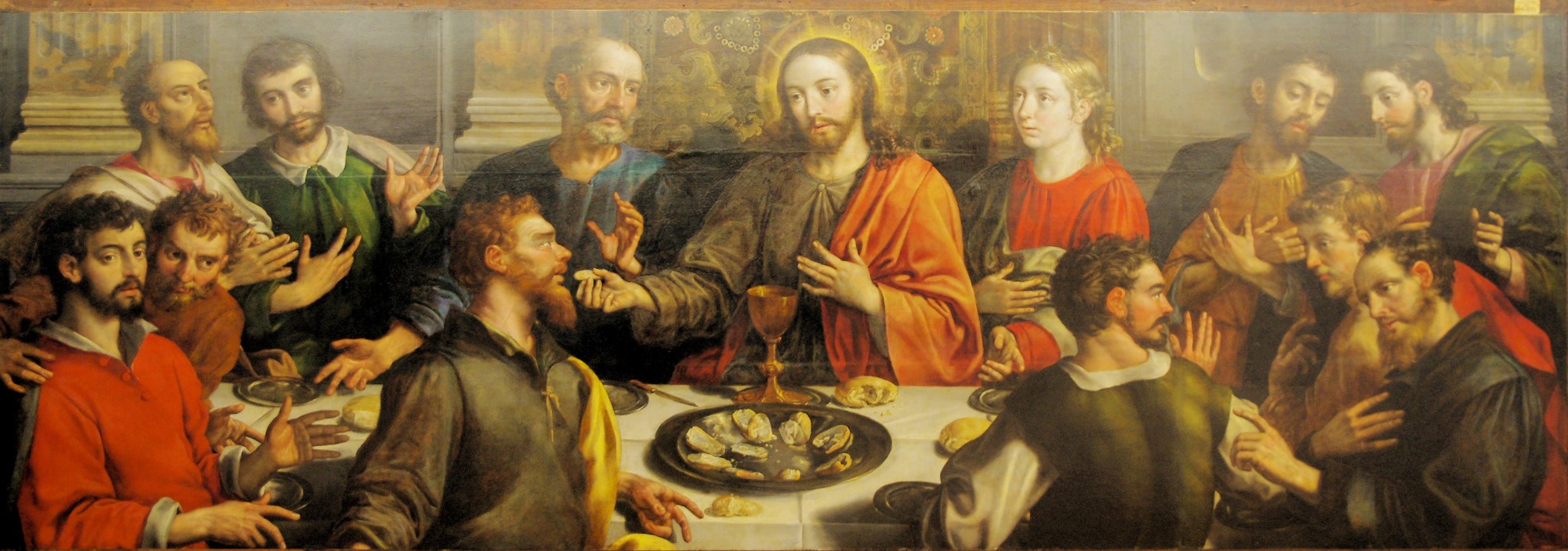
Our Daily Bread
Holy Thursday. Fr Luke Doherty considers how the Eucharist brings us hope by transcending the limits of time. (Our sermons for Good Friday and Easter Day can be found by following the links in this sentence.)
Holy Thursday (or Maundy Thursday) commemorates the Last Supper, when Jesus Christ established the sacrament of Holy Communion prior to his arrest and later crucifixion. It also commemorates his institution of the priesthood, through which the Church uses the words of consecration over bread and wine during Holy Mass, so that they become the Body and Blood of Christ.
The readings at Mass today are rooted in the Book of Isaiah. The Lord has anointed Jesus as the Christ, to bring glad tidings to the poor. He proclaimed liberty to captives, recovery of sight to the blind, and let the oppressed go free. Of course, Jesus was soon to be taken captive himself and will end up as a prisoner sentenced to death by torture and crucifixion. Rather than being a grand coronation in which he is seated on a royal throne and receives power in this world, Jesus suffered humiliation. He allowed himself to experience the sort of isolation that prisoners suffer, and was ‘numbered with the transgressors’ to fulfil the prophecy of Isaiah.
Christ proclaimed the Kingdom of God as a liberation. This means a proclamation of hope to those who are oppressed or trapped in all sorts of ways. The Mass itself is layered with complexity, bringing together old and new covenants. The Eucharist is celebrated in all sorts of places, like in prisons or in warzones. It brings to those who attend a mysterious overcoming of what is normally bound in time. The Eucharist brings light into the dark places in this world. Those who receive the Body and Blood of Christ are part of the Body of Christ, which in a mysterious way is our spiritual daily bread to support us. The light of Christ is brought into the lives of the oppressed, the sick, and those who are vulnerable.
For Catholics, the celebration of Mass is a sort of re-entering into the sacrifice of Christ on Calvary. It is not for us merely a re-enactment of the Last Supper. As indicated by the use of Isaiah to prophesy what was to come, God is not bound by time. The Last Supper itself was an entering into the sacrifice which would be made the next day at Calvary. The Eucharist was instituted in anticipation of events yet to happen, and so it is a crossing into the power of God who is not bound by the confines of time or space as we know it. For God nothing is impossible, and the power of the Mass to change us for the better is perhaps beyond our comprehension.
Readings: Exodus 12:1-8,11-14 | 1 Corinthians 11:23-26 | John 13:1-15


